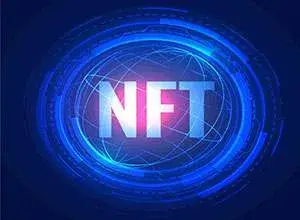By Vikrant Rana and Pranit Biswas
The concept of Non-Fungible Tokens have taken the world by storm in the last 2 years. NFTs have permeated various industries, and are being adopted by celebrities worldwide to make gains, and engage with customers (and fans, in case of celebrities and institutions such as sporting clubs). For the uninitiated, a Non-Fungible Token is, in a very simplistic manner, a blockchain based certificate of authenticity, of ownership over any item (whether a digital asset, or even physical ones). Unlike a fungible item, like a crypto currency like Bitcoin (wherein all the bitcoins are essentially the same, can be exchanged with the other), a NFT is unique and “non-fungible”, and as such no other copy thereof exists. However, the caveat with the NFT being that in most cases, one only owns a token representing the digital asset (or any other item) being represented by the NFT, and not the actual asset or item in question. In many ways, the concept of NFTs is driven by supply and perceived demand, and one can say that the value attributed to NFTs is manufactured value.
With this basic idea of NFTs in mind, one can understand why celebrities and brands have capitalized on the same to sell/ auction NFTs relating to collectibles such as digital art, posters, limited edition items, etc. What is interesting is that NFTs can also be used with respect to objects such as books!
Recently in June 2022, the renowned India Michelin starred chef Vikas Khanna, launched a limited edition of his book titled “Sacred Foods Of India”, in a so-called ‘phygital’ manner. As has been reported, the book will be available to purchase in a physical form, along with a “digital twin” of the same, wherein an NFT thereof will be minted upon purchase from Indian online NFT marketplace akshaya.io[1]. With such news, one would wonder just why a mere cookbook would be the subject of such discussion! The main factor herein is that the physical book is pretty expensive, with the hardbound editions costing between USD 20,000 – 50,000. Thus, as it is a collectible in itself, it is not a stretch of imagination that a NFT relating to the same would be equally valuable. Reportedly, what the NFT of the said cookbook would entail is an elaborate interactive 3D replica of the same, which can be accessed by NFT codes embedded inside the physical book. Although, most importantly, the NFT would be the authentication of the ownership of the book, and will guarantee that the purchaser is incontrovertibly recorded as the “owner” of the limited edition copy of the book.
The Value of an NFT
Thus, the main takeaway from this development is the wide variety of ways in which products can be further monetized by using NFTs. Value of an actual physical or a digital asset is something that can be enhanced by using NFTs.
However, the age-old (relatively) question that crops up is just what rights does it bestow upon the purchaser? For instance, if one were to pay $100,000 for an NFT of a book (as appears to be case in the present news regarding Vikas Khanna, at least partly) or a digital artwork, just what rights they are acquiring? To answer this, one must look more closely at what exactly is a Non-Fungible Token.
In essence, it is simply a code written/ embedded into a blockchain, which contains, inter alia, a unique token ID (created upon generation of the token), as well as a blockchain address (similar to how one would think of a unique IP address), and most importantly, something which identifies the said token ID with the creator, typically a Crypto Wallet ID. Many times, an NFT may also include a link to where in the original work may be found.
In view of this background, it is important to clarify that when buying an NFT, you are likely merely buying the metadata on the blockchain, the token, and not the underlying work itself or any rights such as copyright. Thus, in the context of Vikas Khanna’s work, the NFT would serve as an authentication certificate, which would theoretically denote the creator of the work (i.e. the author) and denote that the purchaser is the owner of the specific limited copy edition of the book. That said, ownership of the copyright of work can also be sold along with the NFT if so specified in the terms and conditions/ transaction.
The Future
NFTs are here to stay, like it or not, and the positive that can be taken from a news such as a NFT of a limited cookbook being sold is that the ownership of the copy of the work can be authenticated by such means, which is especially important for expensive works, such as Vikas Khanna’s new limited edition book, which is being sold for thousands of dollars.
Related Posts
MetaVerse – the fabled digital utopia gets a Second Life?
NFT Revolution: The Intersection of Patents and NFT


